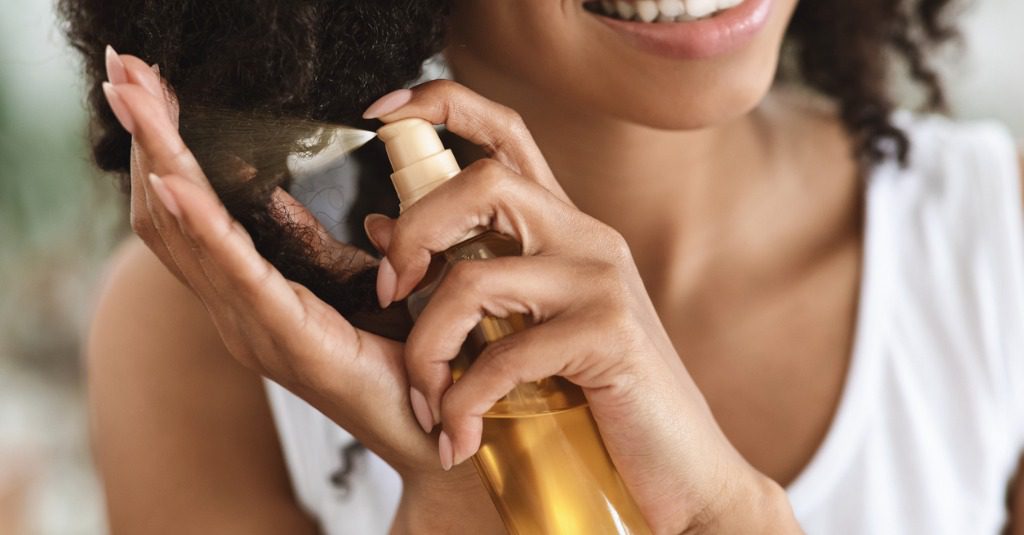The Connection Between Hormones and Hair Loss

Hormones are important molecules involved in coordinating and regulating many of your body’s processes, including metabolism, growth and development, sexual function, reproduction, sleep, mood, and more. Not surprisingly, perhaps, hormones are also involved in the regulation of hair growth and loss.
In this blog post, we’ll explore the intricate connection between hormones and hair loss, shedding light on how hormonal imbalances can affect the health and thickness of your hair.
Understanding Hormones and Hair Growth
Before delving into the connection between hormones and hair loss, it’s essential to understand how hair grows. Hair growth is a cyclic process that includes three phases: anagen (growth phase), catagen (transitional phase), and telogen (resting phase). Hormones play a crucial role in regulating these phases.
The Role of Different Hormones in Hair Growth
While there are over 50 different hormones in the human body, several are more intimately linked to hair growth and hair loss:
- Androgens: Androgens are a group of hormones, including testosterone, which are highly involved in the regulation of hair growth. One particular androgen, Dihydrotestosterone (DHT), plays a key role in the progression of hair loss due to androgenic alopecia. Persons with androgenic alopecia have hair follicles more sensitive to the effects of DHT, which attach to the follicle, causing it to exit the anagen growth phase, shrink, and die.
- Estrogen: Estrogen, the primary female sex hormone, promotes hair growth by extending the anagen phase and maintaining the hair’s thickness. This can explain why women often experience hair loss during menopause, as estrogen levels decline.
- Thyroid Hormones: The thyroid gland produces hormones that regulate metabolism. An underactive or overactive thyroid can lead to hair loss. Hypothyroidism can cause hair to become thin and brittle, while hyperthyroidism can lead to excessive hair shedding.
- Cortisol: Cortisol, the stress hormone, can lead to hair loss when produced in excess. Chronic stress and elevated cortisol levels can disrupt the hair growth cycle, leading to thinning or hair loss.
Hormonal Conditions and Hair Loss

There are several conditions that cause hair loss as a primary or secondary effect of hormonal changes:
- Androgenetic Alopecia: Androgenetic alopecia, commonly known as male or female pattern baldness, is the most common form of hair loss. It is primarily caused by a genetic predisposition that makes hair follicles sensitive to androgens, specifically Dihydrotestosterone (DHT), leading to gradual hair thinning.
- Polycystic Ovary Syndrome (PCOS): PCOS is a hormonal disorder that affects women. It is characterized by an excess of androgens, which can lead to hair thinning, excessive facial hair growth, and irregular menstrual cycles.
- Menopause: During menopause, estrogen levels drop significantly, leading to changes in the hair’s growth pattern. This often results in thinning and reduced hair density.
- Pregnancy: Many women experience hair loss during and/or after pregnancy. This is often largely due to hormonal fluctuations.
Managing Hormonal-Related Hair Loss
If you suspect that hormonal imbalances are causing your hair loss, it’s essential to consult a healthcare professional. They can conduct tests to determine your hormone levels and recommend appropriate treatments. Here are some common approaches to managing hormonal-related hair loss:
- Hormone Therapy: In some cases, hormone replacement therapy (HRT) may be recommended to balance hormone levels, especially during menopause or for thyroid-related hair loss.
- Medications: There are FDA-approved medications, such as minoxidil and finasteride, that can help slow or reverse hair loss by addressing hormonal factors.
- Lifestyle Changes: Stress management techniques, a balanced diet, and regular exercise can help maintain hormonal balance and promote hair health.
- Topical Treatments: Topical treatments containing growth factors or other active ingredients can stimulate hair growth and improve the overall health of the hair follicles.
- Low-Level Laser Therapy (LLLT): Low-Level Laser Therapy, or LLLT, can help stimulate hair regrowth after any hormonal imbalances are addressed.
In Conclusion
Hormones and hair loss are intricately linked, and understanding this connection is crucial for effective hair loss management. By addressing hormonal imbalances and seeking professional guidance, individuals can take steps to minimize hair loss and, in some cases, promote hair regrowth.
Remember that hair loss can result from a combination of factors, and a holistic approach to treatment often yields the best results. If you’re concerned about hair loss, don’t hesitate to consult with a healthcare professional to explore the most suitable options for your specific situation.



